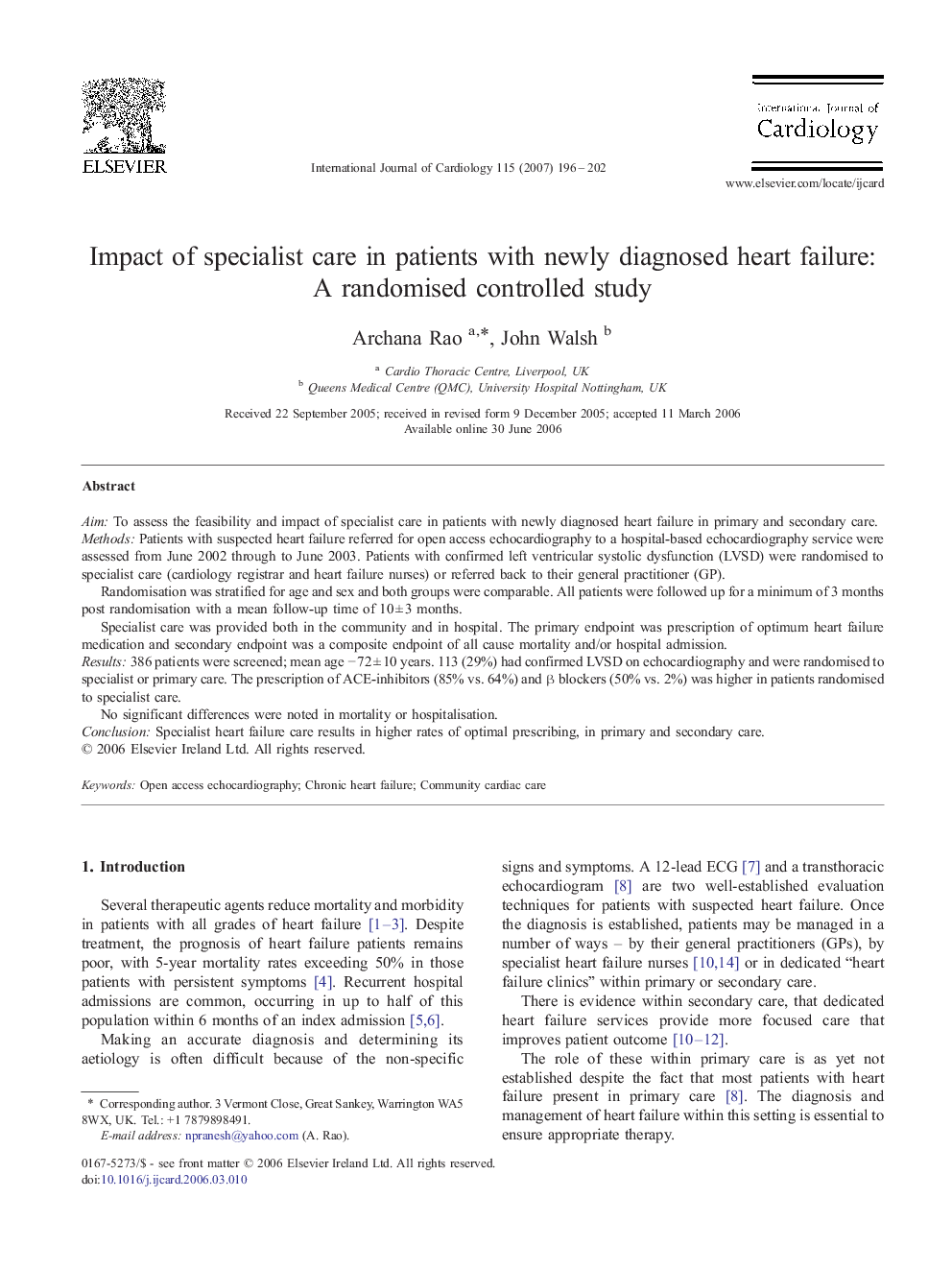| Article ID | Journal | Published Year | Pages | File Type |
|---|---|---|---|---|
| 2935311 | International Journal of Cardiology | 2007 | 7 Pages |
AimTo assess the feasibility and impact of specialist care in patients with newly diagnosed heart failure in primary and secondary care.MethodsPatients with suspected heart failure referred for open access echocardiography to a hospital-based echocardiography service were assessed from June 2002 through to June 2003. Patients with confirmed left ventricular systolic dysfunction (LVSD) were randomised to specialist care (cardiology registrar and heart failure nurses) or referred back to their general practitioner (GP).Randomisation was stratified for age and sex and both groups were comparable. All patients were followed up for a minimum of 3 months post randomisation with a mean follow-up time of 10 ± 3 months.Specialist care was provided both in the community and in hospital. The primary endpoint was prescription of optimum heart failure medication and secondary endpoint was a composite endpoint of all cause mortality and/or hospital admission.Results386 patients were screened; mean age − 72 ± 10 years. 113 (29%) had confirmed LVSD on echocardiography and were randomised to specialist or primary care. The prescription of ACE-inhibitors (85% vs. 64%) and β blockers (50% vs. 2%) was higher in patients randomised to specialist care.No significant differences were noted in mortality or hospitalisation.ConclusionSpecialist heart failure care results in higher rates of optimal prescribing, in primary and secondary care.
